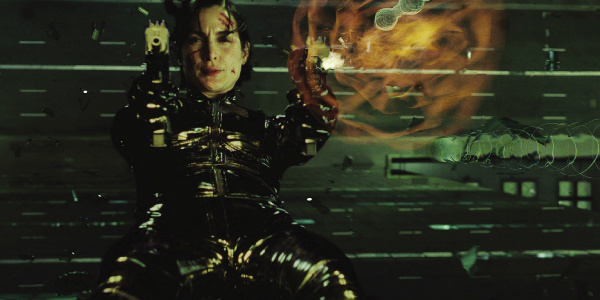
I once drove across London to take a girl to Mass, after Mass I drove her to get something to eat and I then I drove her to work. When I got back home slightly knackered after all the driving, I realised I had committed a pretty selfless act. I mention this because this act of altruism was completely out of character. I am not a generous person. I rarely give without counting the cost, if I fight I heed the wounds, if I toil I immediately seek for rest and if I labour I expect a pretty substantial reward. In short, I am selfish. Yet here I was, on a Sunday morning without much effort or thought, in fact without even really realising what I was doing until I had done it, doing something completely for another.
The Trinity is the central mystery of Christian Faith and life (Catechism of the Catholic Church, Paragraph 234 hereafter referred to as CCC para). For our Jewish brothers our belief in the Father, Son and Holy Spirit is simply a variation of Polytheism (the belief of more than one God), a belief that their entire faith is based on repudiating. For Islam much the same can be said. Yet Christians hold that the mystery of the Trinity has not rendered their Monotheism (belief in one God) invalid but rather shone light on the mystery of God in a way that was not accessible to reason alone (CCC 237). The Church has never wavered in this commitment to the Trinity even though it would perhaps have been easier for her to jettison its theological baggage for a safer, more understandable vision of God. Despite this, the Trinity seems so unrecognisable in our world that we find it hard to equate it with a God who desires to reveal himself to mankind.
Why? Why would God choose to hide himself in this manner?
Perhaps though he has not. Perhaps, beyond the theological reasoning and philosophical arguments, all necessary all vital, there is another underlying problem that underpins our bafflement. We do not understand the Trinity because we do not understand love.
Love is to will the Good of another (CCC 1766) but behind this simple sentence is perhaps the greatest complexity of human existence. How much of our so-called love is caught up in our own needs and wants? How many of our relationships are merely subterfuges for acceptance and affirmation? How many of our acts of charity are really calculated attempts to extract praise and adulation with a veneer of altruism? How much of our love for God is actually a desire to manipulate him into doing our will? Is this the reason we cannot pray? Not because of time or commitments but because our love for God is so dependent on what he can give to us. If we do not feel good in prayer then we do not feel obligated to pray and the superficial nature of our love for him is revealed.
Love, the self-gift of one for another most perfectly expressed through the life, death and resurrection of Jesus Christ is so far from us that we cannot fathom it. Jesus emptied himself in order to show us the depths of the Father’s love for us in order that we might imitate him. Despite this example we blunder though life looking to take, looking to conquer, looking in short, for ourselves. Our love can be so tainted with our pride that it becomes unrecognisable. Is this the real reason that the Trinity seems to alien to us? When God is love, Father, Son and Holy Spirit (CCC 257)?
The problem is, is that if Love is the only thing that changes us, who then can be saved (Luke 18:26)?
Only the Triune God can. For God, all things are possible. Then with his power and his Grace, kissing the beggar with sores becomes not an act of ascetic willpower but an act of effortless compassion. Then a drive across West London on a damp morning in November becomes a thing of beauty rather than drudgery that surfs across a wave of egotism.
Our love for God can be measured by the time we wish to spend with him, in rain or shine, in good times and bad. Let us begin then to pray with seriousness, to begin the prosaic duty of setting aside time to enter into the mystery of the Trinity with resolve, faithfulness and determination that we may be changed and ultimately, saved.





No comment yet, add your voice below!